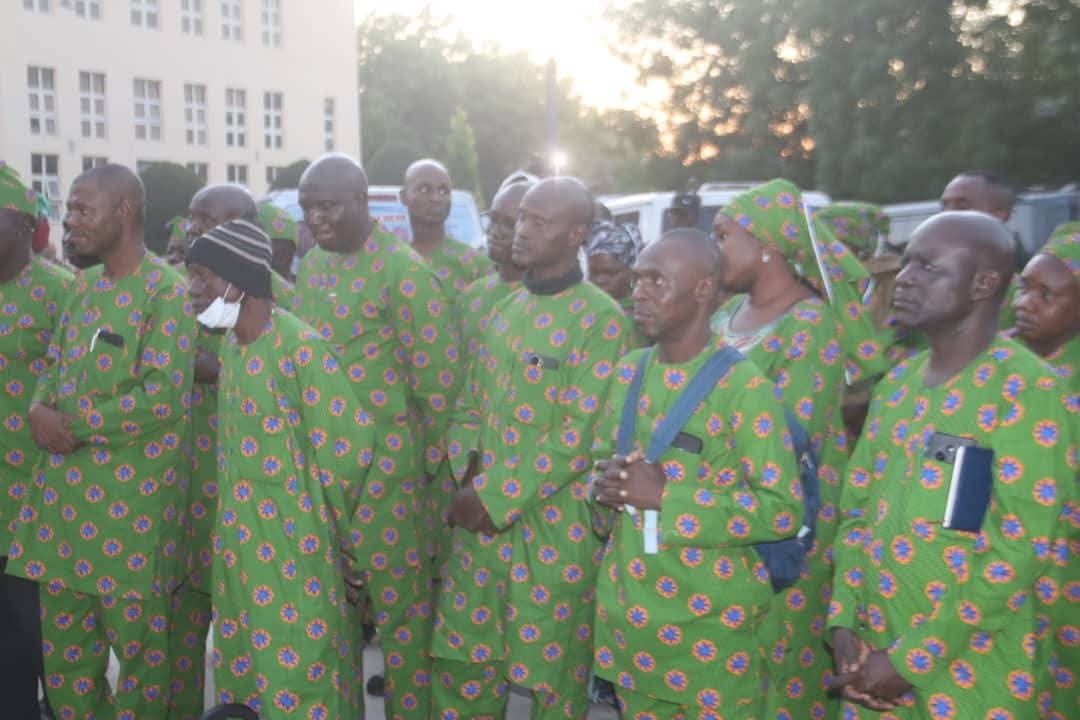In a move aimed at revitalising Nigeria’s automotive sector and expanding technical manpower, the Federal Government on Thursday flagged off the construction of a state-of-the-art Automotive Training Centre (ATC) at the University of Education and Entrepreneurship, Akamkpa, Cross River State.
The groundbreaking ceremony, held within the university premises, marked what stakeholders described as a significant step towards positioning Nigeria for global competitiveness in automotive technology and industrial innovation.
Representing the Federal Government, Minister of State for Industry, Trade and Investment, Senator John Owan Enoh, said the project reflects a deliberate strategy to build human capital, localise technical expertise, and move Nigeria from consumer to producer in the automotive value chain.
“We are no longer content being bystanders; this centre is not just a facility; it is a seed of knowledge, a fountain of opportunity, and a catalyst for industrial rebirth.” The minister declared.
He revealed that the project follows closely behind the recent commissioning of a similar facility in Lagos, reinforcing the Federal Government’s intent to establish multiple automotive training hubs across the country.
Citing President Bola Ahmed Tinubu’s ‘Nigeria First” industrial policy as guiding vision, the minister added, “Back in the 1970s, Nigeria stood shoulder to shoulder with South Africa and Morocco in automotive development. Today, South Africa has surged ahead. But we are now determined to reclaim our place.”
The Cross River State Governor, Senator Bassey Otu, who was represented by the Vice Chairman of the State Planning Commission, Dr. Bong Duke, described the project as a future-facing initiative and pledged the state government’s unflinching support.
He emphasised the strategic choice of the location for the Automotive Training Centre. He highlighted that the project is situated at the University of Education and Entrepreneurship, Akamkpa, the first university of entrepreneurship in Nigeria. This unique positioning, he said, aligns perfectly with the state’s vision to empower youth, women, and entrepreneurs through practical and vocational education.
Dr. Duke assured that the state government is fully committed to the project’s successful completion. Although it is a federal initiative, the government of Cross River views it as its own and will work closely to ensure its success within the university.
“We have given 100 per cent commitment. This university, the only one of entrepreneurship in Nigeria, is the right place for such a transformative project, though federal, we consider it our own and will stand by it until completion,” he said.
Director General of the National Automotive Design and Development Council (NADDC), Oluwemimo Osanipin, underscored the strategic relevance of the training centre. According to him, the facility will offer a blend of theoretical knowledge and hands-on training, fully equipped with modern diagnostic and servicing tools that match global standards.
“In an era of electric vehicles, alternative fuels, and digitalised maintenance systems, we cannot afford to use 20-year-old methods to fix today’s cars. This centre is designed to future-proof our automotive sector.” Osanipin stated.
He explained that the curriculum is being developed not only for existing technicians but also for students within the university, with a broader aim to stimulate entrepreneurship and innovation.
Chairman of the NADDC Governing Board, Chief Emma Eneukwu, who also spoke at the event, said the project symbolises more than a physical structure, noting that it lays a foundation for hope, jobs, and dignity.
“The board is committed to seeing that this facility is not just completed but sustained through a strong public-private partnership framework,” he added.
According to him, Cross River’s strategic location and human capital potential make it a natural choice for the training centre, which will serve as a model for similar initiatives nationwide.
The event was attended by key federal and state officials, local government representatives, traditional rulers, and members of the university community. All expressed optimism that the ATC will become a beacon of skill development and industrial transformation in the region.






